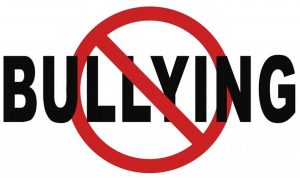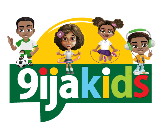You received a call from your child’s school informing you that your he/she has gotten into trouble for picking on/bullying others. And you would be like what? Never!!! No parent wants to hear that their child is a bully. Every parent likes to think the best of their little angels. But every child is capable of bullying.
Bullying is not only when one child hits or acts aggressively towards another child. Bullying can be teasing other children over and over again, intentionally ignoring other children or leaving them out of activities or even saying mean things or calling other children names.
Children see examples of bullying behaviour every day through media, politics, TV reality shows, other kids at school, and even family dynamics. They may not understand that such behaviours are not acceptable anywhere. If your child is a bully, it doesn’t mean your child is bad and it does not make you a bad parent. It simply means that you need to take necessary steps to correct the behaviour.
Here are a few tips on what to do if your child is bullying others
- Acknowledge the behaviour
Have a discussion with your child to get his view of what happened. Be prepared to listen and be open minded. Ask questions to help him/her understand what happened and how his/her behaviour is affecting others. It is important to reemphasise on the need to treat others fairly and the way we want others to treat us.
- Teach kids to treat others with respect and kindness
This year’s anti-bullying week is themed “I CHOOSE RESPECT”. Help your kids to understand the importance of respecting one and another and their friends in school. Tell them it is wrong to ridicule differences (e.g., race, religion, appearance, special needs, gender, economic status) and rather than scorning or laughing at people who are different, help to instil a sense of empathy in them.
- Provide consequences
Help your child understand that he/she is accountable for his/her actions. It doesn’t matter what the other person did, they can’t control that. However, they are in complete control of their actions and there are consequences for those actions. Define and follow through with consequences for bullying behaviour. You can eliminate something your child cherishes so the consequence will be significant, taking away your child’s cell phone, eliminating or reducing TV or video game time, or preventing participation in a social outing.
- Encourage good behaviour.
For kids, positive reinforcement really works. A child will more likely repeat something when you praise them for it. Anytime you spot them exhibiting good behaviour towards others, give them the Okay sign, let them understand you would like to see more of that and when they handle situations in ways that are constructive or positive, take note and praise them for it.
- Know their friends
Most kids bully because their friends do the same. sometimes it’s just an action performed to feel wanted. So, the desire to fit in within a group of friends who are picking on one classmate is a good motivating factor for them. Understand his/her circle in school and speak to the teacher about it to disband them and keep an eye on them.
- Lead by example
Children are great imitators, they don’t always do what you tell them to but will typically model the behaviour around them. Children who are exposed to aggressive or unkind interactions at home are more likely to repeat those behaviours at school. Do members of your family engage in yelling, name-calling, or put downs? Do your children pick on one another, or hit each other? Then its important to begin to make changes and model right behaviours.
- Help them build social and emotional skills
Children need to learn how to control their emotion, resolve conflicts and handle tough situations. Look for after-school programs and extracurricular activities that can help to build emotional skills, provide positive coping mechanism as well as build new relationships.


